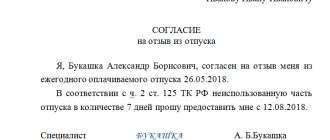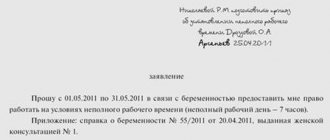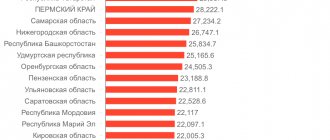Basic norms
Labor legislation broadly interprets the concept of “injury at work.” These will include, first of all, mechanical bodily injury related directly to the production process. For example, an injury sustained by a worker on a lathe. In addition to them, this concept according to Art. 227 of the Labor Code of the Russian Federation includes:
- Heatstroke and burns.
- Frostbite and drowning.
- Insect and animal bites.
- Damage resulting from collapses, accidents, etc.
- Electric shock and lightning strikes.
Expert commentary
Gorbunova Olga
Lawyer
Most employees are aware that such incidents will be considered as work-related injuries if they occur at the enterprise during working hours. But not everyone knows whether such damage is considered an industrial injury if it is received outside the enterprise, but is directly or indirectly related to the production process.
The Labor Code establishes that an injury will be considered work-related if it was received:
- Off-site, but while performing a work assignment.
- When going on a business trip or during departure from it, when following the employer’s orders to the place where a work assignment is carried out.
- During rest while working on a rotational basis.
An injury will also be considered work-related if it is received while traveling to or from work. But for this to happen, one of the following conditions must be met:
- Movement was carried out using vehicles provided by the employer for these purposes.
- The movement was carried out in the employee’s own vehicle if it is used for official purposes on the basis of a mutual written agreement with the employer or at his order.
Non-work-related injury
If an employee is injured on the way to work, how can one determine whether it was work-related or not? An injury is considered industrial if the employee was on transport provided by the enterprise, but several conditions are taken into account:
- use of a personal car by order of the management of the enterprise, as well as if this information appears in the employment agreement;
- the administration of the enterprise has a copy of the vehicle’s registration certificate;
- The employee's travel is recorded.
If at least one of the conditions is not met, then the injury is classified as domestic.
The legislative framework
When determining an injury as a work-related injury, employers and regulatory structures are required to focus on:
- Art. 227 Labor Code of the Russian Federation.
- Local regulations at a specific enterprise. These documents may detail certain circumstances of injury, but should not contradict the Labor Code. That is, it is allowed to expand the list of injuries that will be considered industrial, but not to reduce it.
Article 227 of the Labor Code of the Russian Federation
“Accidents subject to investigation and recording” (more details)
What to do for the victim
If the circumstances of the victim’s injury are related to the above reasons, the employee can confidently defend his rights. first of all, he must contact his employer with a request to create a commission to investigate the incident and properly document it.
If the injury received does not pose a serious threat to the health and life of the employee, the investigation of the circumstances must be completed within three days, but if the injury is serious, within fifteen. If an employee dies, his relatives should contact the employer with a statement.
If the employer claims that the injury is not related to production issues and refuses to investigate the incident, the injured person can contact the labor inspectorate. In such cases, the investigation of the circumstances is carried out by the responsible inspector, whose decision the employer has no right to influence. The organization itself will be fined for failure to provide information about the incident and concealment of the circumstances of the industrial injury.
An employee can also contact the labor inspectorate if he does not agree with the conclusions of the commission that was formed by the employer to investigate the circumstances of the incident. If the inspector agrees with the victim’s arguments, the employer will be required to draw up a new report on the investigation of the emergency.
Sequence of actions in case of injury to an employee
It is important to follow the legal action plan when an employee is injured for several reasons:
- The nature and size of monetary payments to the victim will depend on this.
- Determination of punishment for guilty persons when they are identified.
Let's take a closer look at how to document the incident. The sequence of actions in the event of a work-related injury will have some differences depending on the degree of its severity and the availability of internal documentation that establishes the procedure for a particular enterprise.
The procedure is as follows:
- After receiving an injury, an employee goes to a medical facility for assistance and examination. If he cannot do this on his own, an ambulance is called for him.
- The employer is notified of the injury as quickly as possible. This can be done by the victim himself, witnesses, and medical workers.
- The employer requests written explanations from witnesses if they were present at the time of the incident.
- If the injury falls within the characteristics of an industrial injury, the employer appoints a commission to review the circumstances of the incident. It includes employees of the enterprise. This could be: a representative of the personnel department, the head of the security service, etc. If one or more people died during an incident that resulted in injury, representatives of regulatory and investigative authorities from outside are included in the commission. After completion of the commission’s work, an act must be drawn up in form N1. The maximum period of its operation is 15 days, but only in exceptional circumstances in case of serious damage. In case of a minor injury, the commission must submit a report within 3 days.
- The necessary documentation is submitted to the Social Insurance Fund to assign payments to the injured person. If the employer is identified as the culprit, payments are made at his expense.
- If the injured employee filled out sick leave, after returning to work, he provides documents from the medical institution to the accounting department. Provided that due to the injuries received, the employee will not be able to continue working, the relevant documents are additionally provided to the personnel department of the enterprise.
During the work of the commission and to ensure its activities, a certain package of documents will be required:
- Order from the head of the enterprise on the formation of a commission to review the circumstances of the industrial injury.
- Conclusion from a medical institution about the nature of the injury, possible causes and consequences.
- Medical report on the presence of narcotic and alcoholic substances in the victim’s blood.
- Explanatory note from an employee who was injured.
- Explanatory notes from the company's employees if they witnessed the incident.
- Photos and video materials from the scene of the incident, if they were taken.
- A log entry indicating that the injured employee received safety training with his or her personal signature.
- A diagram of the scene of the incident where the employee was injured.
Responsibility of the employer when concealing a case
BT form
If a work-related injury occurred on the way to work, the situation will be reviewed within a specified period. Its duration depends on the degree of injury. If minor damage is caused, a decision will be made within 3 days. In a situation where a person has suffered a serious work injury, the period is extended to 15 days.
It is necessary to indicate the connection between the injury and the production process, and also supplement the application with a doctor’s opinion.
If an accident on the way to work is being considered, the following documentation must be completed:
- an order to create a commission at the enterprise, which is entrusted with the responsibility of reviewing the current situation;
- a documented inspection of the production premises or other incident site, its plan and diagram;
- protocols drawn up based on interviews with witnesses, if any;
- conclusion about the degree of occupational injury;
- the result of an examination for the presence of alcohol or drugs in the victim’s blood;
- the final protocol of the commission, which indicates whether the injury is recognized as work-related;
- making an entry in the accident log.
Upon receipt of information about an injury to an employee, the employer is obliged to:
- Ask the victim and eyewitnesses of the incident to write explanatory notes about this.
- Create a commission to conduct an investigation. This requires a medical report on the severity.
- After the investigation, an act is drawn up in form N-1.
- Sick leave is paid at the expense of the employer if the incident occurred through the fault of the enterprise administration.
The employer's actions are regulated by regulatory documents.
Injury at work is an insured event and the consequences can be compensated in accordance with current legislation. It turns out that the employer is liable if it did not properly investigate the accident.
This is an article included in the administrative code, on the basis of which penalties are established. Penalties apply for this:
- for ordinary citizens the fine amount is set at 300-500 rubles;
- for employees 500 -1000 rubles;
- for organizational structures 5,000 -10,000 rubles.
Therefore, it is unprofitable to hide such cases so that everything results in unpleasant consequences. In addition, an investigation will be carried out and the organization will need a lot of time, which will entail a lot of unpredictable circumstances affecting the release of finished products.
If benefits are not issued, but the citizen received an injury recorded by specialists, then he needs to declare his rights. There is a labor inspectorate for this. Its employees will issue an order and may impose a fine for violations.
If this does not help, then every citizen has the right to go to court. The court will make a decision on the illegality of the actions, and the benefit will be required to be paid in full. According to the law, the employee must receive compensation.
Getting injured on a business trip
An employee can go to or from work not only at the place of his main job and immediate residence, but also in another locality if the employer sent him on a business trip. If such an employee, while on a business trip, went to the place of temporary work or left the business trip and went to the place of permanent work and during this period was injured, it will also be classified as industrial.
In such a case, consideration of the details of the incident may vary significantly depending on the circumstances. If such an employee is injured while traveling to a place of temporary work, the investigation should be carried out by the structure to which he was officially seconded.
All circumstances are investigated according to the usual scheme, i.e., working hours, mode of transportation, etc. are taken into account. The commission includes representatives of the enterprise where the injured employee carries out temporary work activities. In this case, the general procedure for notifying insurance and regulatory organizations remains the same. A distinctive nuance will be the mandatory notification of the main employer about the injury and the consequences for the life and health of the employee.
Expert commentary
Gorchakov Vladimir
Lawyer
If an employee is injured on a business trip while on his way to his main place of work, the employer is responsible for determining the circumstances of the incident.
Industrial injury on the way to work: what is taken into account and registration
Last modified: June 2019
We have to deal with such an interesting case as an industrial injury on the way to work, and determine the measures that will be applied in this situation. It is impossible to predict in advance all the dangers in life.
Employees are injured on the job or outside of work. With regard to cases that occur at work, the law is clear in its interpretation of injury as an industrial injury.
But more often, accidents leading to disability occur outside of work and working hours.
If the law is clear regarding cases that occurred during working hours on company premises, then when receiving injuries outside of work there are some nuances, since the circumstances can be interpreted differently.
According to labor law, a work-related injury can occur during the performance of work duties during the hours specified by the contract as working hours. It is permissible to apply the same norm in relation to the employee’s route from his place of work to his home.
Fractures and any bodily injuries are not the entire list in which cases an injury is considered work-related. The following incidents are legally considered to be a work injury:
- electric shock or lightning;
- heatstroke;
- frostbite of the body;
- burns;
- bites;
- exposure to radiation;
- drowning;
- the impact of natural disasters and man-made disasters;
- accidents.
Any event that negatively affects an employee’s ability to work can be classified as an industrial accident. It is more important to identify the circumstances under which a person was injured.
Provisions of Art. 227 of the Labor Code of the Russian Federation explains the main subtleties of the application of the law in relation to industrial injuries, depending on the time of the incident and location. The Labor Code also regulates the payments that an injured employee can receive.
An injury on the way to work is considered work-related if the employee was injured in the following situations:
- If you were injured on the way to work or home, you used a company vehicle that belonged to or was registered by the company for its own needs.
- A business traveler driving a company car was injured on the way to work.
- During shift work, an employee was injured during working hours or during a shift change (applies to persons primarily employed on the railway).
- An injury in the workplace during non-working hours or in the performance of official duties occurred while trying to prevent a disaster.
In order to correctly interpret cases, the enterprise must take care in advance about the proper registration of the period of work and shift changes if the activity involves shift work of personnel. These provisions are recorded in the internal regulations and normative acts of the enterprise, taking into account the specifics of the work.
What payments are due for temporary disability?
Regardless of the cause of injury, each employee, in accordance with Art. 5 Federal Law of the Russian Federation No. 255 provides for cash benefits due to temporary disability. It is reimbursed from the Social Insurance Fund. The benefit amount is 100% of the victim’s average earnings. This procedure is enshrined in Federal Law of the Russian Federation No. 125 (dated July 24, 1998).
Additionally, according to Art. 184 of the Labor Code of the Russian Federation, in the event of damage to health and/or in the event of death due to an industrial injury, such an employee or his family must be paid compensation, the purpose of which is to compensate for earnings lost due to disability. As well as the costs incurred for all types of rehabilitation after injury.
Article 184 of the Labor Code of the Russian Federation - Guarantees and compensation in case of accident at work and occupational disease
In case of damage to health or in the event of death of an employee as a result of an accident at work or an occupational disease, the employee (his family) is compensated for his lost earnings (income), as well as additional expenses associated with damage to health for medical, social and professional rehabilitation or corresponding expenses in connection with death of an employee.
The types, volumes and conditions for providing guarantees and compensation to employees in these cases are determined by federal laws. Important! The employee is entitled to a lump sum payment as well as monthly payments. Their size will depend on the degree of lost ability to work. It is determined by ITU specialists. If rehabilitation is necessary, funds for its implementation should be allocated from the Social Insurance Fund budget.
These payments are mandatory for all categories of employees. Additional compensation may be provided for employees working in certain industries. They are secured if the company signs industry tariff agreements. Plus, at each enterprise, internal regulations may establish any other monetary payments provided for industrial injuries.
Moral damage must be compensated by the person who is responsible for the industrial injury. If it is the employer, the amount of compensation is determined by mutual agreement. When an injured employee is not satisfied with the amount offered, he can file a claim in court.
Is an injury while commuting considered work related?
The same applies to an industrial injury on the way from work, and both incidents must be recorded and documented properly. The time frame for investigating industrial accidents is established by Art.
Labor Code of the Russian Federation:
- If the employee received minor injuries, then 3 days are given for consideration.
- If a serious injury was sustained, 15 days are allotted for the investigation.
Labor inspectorate employees may be involved to investigate the accident. Their responsibilities include identifying and identifying witnesses to the incident; persons who violated labor protection requirements; obtaining an explanation from the injured employee and the necessary information from his employer.
We invite you to familiarize yourself with the International Driving License in 2020
What documents must be completed during the investigation of the incident:
- Order on the composition of the commission.
What injury is considered a work-related injury under the law? Article 227 of the Russian Labor Code states that this group includes injuries that occur to an employee at the workplace during a shift or a regulated break. But, it is necessary to make several clarifications. The shift specified in the employment contract is considered official.
In other words, if, according to the contract, you are supposed to arrive at the enterprise at 9, but according to a verbal agreement you showed up at 8 and were injured between 8 and 9, it will be more difficult to obtain proper compensation, especially if the boss does not want to compensate for the damage. The break must also be regulated by the service regulations. If a person receives a broken arm during working hours while away from work for personal reasons, the injury is considered a domestic injury.
It’s worth noting right away that the Labor Code of the Russian Federation defines a list of situations in which injuries received on the way to work are considered production-related; this is relevant even in the event of an accident.
So, for example, damage on the way to work will be taken into account if the employee used official transport provided by the employer.
By the way, this applies to both the direction towards work and the path away from it.
According to the Labor Code of the Russian Federation, corresponding injury on the way to work is regulated by Art. 227, and in particular paragraph 3.
We suggest you read: How to behave at work when your boss survives
Conventionally, they can be divided into the following types:
- Injuries. This list includes various injuries, and damage that occurred as a result of the actions of other persons must also be taken into account;
- Other damage. The employee may suffer other types of injuries, which include damage from radiation, electricity or lightning, as well as burns, heat stroke and even frostbite;
- Animals and insects. This includes any bodily injury, for example, bites inflicted on the way to work;
- Extraordinary circumstances. Work-related injuries can occur due to destruction, natural disasters, accidents or explosions;
- Other damage. They are considered work-related injuries if they caused loss of ability to work (permanent or temporary), require transfer from the main place of activity, as well as injuries with a fatal outcome.
It is worth considering a situation where an employee, for example, broke her arm on the way to the work area.
If an employee was hit by a car and broke her arm, then the manager will consider this situation as an accident, and it will be a domestic injury, not a work injury.
But if an employee travels on official or personal transport or personal and breaks her arm, then the Labor Code of the Russian Federation states that such an injury is considered industrial.
The same can be said about road accidents on the way to work and on the way home. As mentioned above, the Labor Code of the Russian Federation provides for the recognition of damage as production damage in the case of certain conditions for using the car. But if an accident occurs and an employee breaks her arm when she gets hit by a car while walking, then the situation will not be industrial.
The Labor Code of the Russian Federation, and in particular Article 227, guarantees that every case of injury is subject to investigation, and if it is confirmed, the employer reimburses the costs - payment for medicines.
A work-related injury on the way to work is not only subject to investigation, but is also considered fully payable:
- Sick leave payment is considered;
- Payment for treatment and payment for rehabilitation are considered.
Of course, the degree of injury, even if it is an accident, is subject to mandatory investigation by a medical and social examination. By the way, in some situations, payment is made exclusively at the expense of the enterprise, without compensation from the Social Insurance Fund.
Often, employers assign tasks to employees that do not arise from their job functions. For example, after finishing work, a salesperson is asked to deliver an order to a client because the courier does not have time to do this. If an employee has an accident during delivery, it must be investigated and, most likely, considered a work-related accident.
The employer should remember that if an employee was performing any assignment for the employer that was not part of his job function and was killed or injured, such an event is considered an accident and must be investigated in accordance with the procedure established by law. It does not matter whether the accident occurred during non-working hours or not on the employer’s premises.
Often, employers refuse to investigate accidents, believing that they are not related to production. In such a situation, the injured employee has the right to contact the State Tax Inspectorate. The inspector will investigate the accident alone and will not be able to influence his decision. In addition, the inspector will fine the company and director under Part 1 of Art. 5.27.1 Code of Administrative Offenses of the Russian Federation.
If during an additional inspection the inspector comes to a different opinion regarding the qualification of the accident, he will oblige the employer to draw up a new report on the results of the investigation.
It is unlikely that the inspector’s decision will be appealed, since the courts in such disputes are usually on the side of the State Tax Inspectorate.
Often workers are injured when working, for example, with vehicles, machinery, high-voltage electrical energy generators, etc. (Part 1 of Article 1079 of the Civil Code of the Russian Federation).
All of them are sources of increased danger.
It is important to consider that even if an injury from such a source is recognized as non-work-related, this will not prevent the employee from recovering compensation for moral damages from the company, as well as treatment costs.
We invite you to read: We are hiring a remote worker
In this situation, the company’s fault does not matter, since the fact that the company owns a source of increased danger is important. The employer will be able to avoid liability only if he proves that the damage occurred as a result of force majeure, the intent of the employee, or that the source of increased danger left his possession due to the illegal actions of third parties (Article 1079 of the Civil Code of the Russian Federation).
An accident during an inter-shift rest period on a shift may be industrial. Companies that use a rotational work method may encounter a situation where an employee is injured during an inter-shift rest period on the territory of the rotation camp. At first glance, such a case is not related to production, since it occurs during non-working hours, not while the employee is performing his job duties, and not even when carrying out instructions on the instructions of the employer.
But you need to take into account the provisions of Part 3 of Art. 227 Labor Code of the Russian Federation. It stipulates that those cases that occur with employees while working on a rotational basis and during rest between shifts are subject to investigation as accidents. Consequently, upon the fact of an accident during inter-shift rest on the territory of the rotational camp, it is necessary to form a commission and investigate what happened.
When qualifying accidents, courts do not always take into account the employee’s compliance with the rules of behavior on the territory of the rotation camp during rest periods between shifts.
Thus, in one of the cases, the court took into account that the employer provided money to pay for housing, and during the period of residence the employee actually performed work at the company’s facilities on a rotational basis, which served as the basis for classifying the accident as an industrial accident.
It should be noted that even in the event of a non-work injury, the employee’s sick leave must be paid in accordance with the established procedure.
What to do if the employer does not pay the required compensation? After carrying out all necessary measures related to the investigation of the circumstances of the employee’s occupational injury, the manager must assign appropriate compensation payments.
The labor inspectorate or directly to a judicial institution. The inspection established that he was not to blame for the incident. After a medical examination by Sergeev A.V. a concussion was diagnosed. He contacted his employer in order to receive appropriate compensation for the treatment he received.
All material costs must be borne by the insurance company. What compensation can an employee who has suffered a work injury expect? An employee whose health has been injured at work will most likely need subsequent treatment.
We suggest you read: Will the documents be given back in the event of the applicant’s death?
We suggest you read: Where to go if human rights are violated
Its scheme will depend on the degree of harm caused and the severity of the damage.
If the employer does not take the initiative and tries to forget what happened, such actions may be regarded by the authorized body as a deliberate concealment of an industrial emergency.
- a written explanation from your employee, which will indicate important details of what happened. This also includes official testimony from witnesses who saw important circumstances surrounding the employee’s injury.
What compensation can an employee who has suffered a work injury expect?
An employee whose health has been injured at work will most likely need subsequent treatment. Its scheme will depend on the degree of harm caused and the severity of the damage. The very fact that a citizen has an industrial injury establishes certain obligations in relation to his employer, the main one of which is the payment of required compensation. The main ones include:
- one-time insurance compensation, the amount of which is established in accordance with current regulations;
- regular benefits in connection with the onset of temporary disability, the payment of which ceases only after the employee returns to perform his professional duties;
- insurance payments that are assigned to a citizen on a monthly basis;
- providing compensation for other additional expenses, for example, payment for travel to the place of treatment, compensation for purchased medications or for paid medical examinations, etc.
The above list is not exhaustive. Through separate provisions, for example, a collective agreement, the employer can establish additional types of compensation that will be due to employees in the event of a work-related injury. However, it should be noted that the manager cannot cancel
mandatory compensation listed above. Otherwise, his actions will be contrary to existing standards and established guarantees regarding workers' rights.
Actions of the victim
If the commission receives evidence that the victim violated occupational health and safety rules or was intoxicated, the administration may refuse to receive compensation payments.
How is a work injury paid for on sick leave?
To ensure that the interests of the injured person and his family are taken into account, he is allowed to personally participate in the investigation. In addition, according to the articles of the Labor Code, the victim has the right to familiarize himself with all materials.
After completion of the work, the commission is obliged to draw up an act, without which payment of compensation is impossible.
To apply for compensation, the employee must provide the following package of documents:
- a correctly completed accident report;
- a certificate with a diagnosis and a conclusion about loss of ability to work from a medical institution;
- certificate 2 of personal income tax on average wages;
- a copy of the employment contract and work record book;
- passport or equivalent document.
Under no circumstances should the employee:
- after receiving injuries, return to the workplace;
- sign for the safety training carried out retroactively;
- sign other documents drawn up by management;
- refuse to call for medical help.
For your information! All this leads to him being found guilty of the accident and management refusing to pay compensation.
What to do if the employer does not pay the required compensation?
After carrying out all necessary measures related to the investigation of the circumstances of the employee’s occupational injury, the manager must assign appropriate compensation payments. Their size is set individually, depending on the specific features of the incident, as well as other additional nuances. All payments must be made officially, through the FSS branch.
In the event that the manager delays in paying the due compensation, the citizen will have the legal right to appeal to authorized organizations: the Labor Inspectorate or directly to a judicial institution. As a rule, civil cases on this issue are considered within two months, depending on the complexity of the issue, as well as the presence of various additional circumstances.
If the plaintiff's demands are satisfied, the authorized organization will oblige the employer to pay the established compensation. In addition, for the delay, additional penalties may be applied to the perpetrator, including a monetary fine. In some cases, compensation for moral damage may also be recovered from the employer if the court agrees with its existence.
The magistrate’s court also has the right to consider cases of non-payment of compensation for an industrial injury. In this case, the period for consideration of the claim will be up to one month from the moment the person applies to the court.









